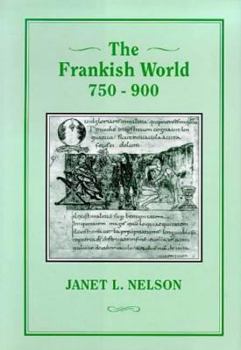The Frankish World, 750-900
In these essays Carolingian government is explored through the workings of courts and assemblies; through administrative texts; through contemporaries' historical writing; through the rituals, looking back to Roman times and reflecting the long continuity of administration in the areas constituting Francia that supplemented and reinforced social and political solidarities; and through the ideological and material dilemmas confronted by ninth-century churchmen: the material wealth of the church, a necessary precondition to its influence, attracted a variety of private interests that inhibited its ability to perform its public duty.
Janet Nelson extends her perspective to include the settlement of disputes, often without recourse to courts or to conflict, and the application of law. An introduction sets Francia in context and outlines its main features. More recent work on gender history is represented here by studies of the political, intellectual and religious activities of women in the Frankish world. Although circumscribed, the activities of women acting on their own will can be clearly detected. While the male authorship of nearly all early medieval texts has usually been taken for granted, Janet Nelson makes a case for the possibility that a number were written by women.Format:Hardcover
Language:English
ISBN:1852851058
ISBN13:9781852851057
Release Date:November 2003
Publisher:Bloomsbury Academic
Length:290 Pages
Weight:1.28 lbs.
Dimensions:0.7" x 6.1" x 9.2"
Related Subjects
HistoryCustomer Reviews
0 rating





